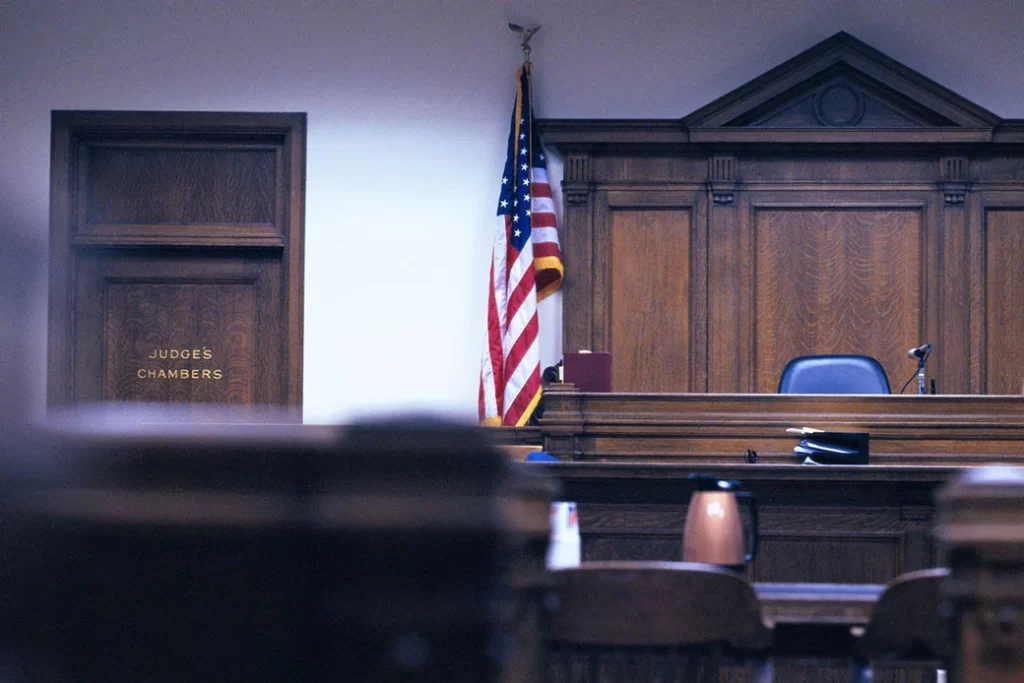There are many famous cases that have influenced how we interpret and apply the law in the American legal system. Let’s look at 5 court cases that changed the American Justice System.
Top 5 court cases that changed the American Justice System
1- Caniglia v. Strom (2021)
In a 2015 fight with his wife, Edward Caniglia allegedly told her to shoot him while setting a gun on the table. She refused to comply, walked away, and made a welfare check request while calling the police. Caniglia was transported to the hospital for a mental health assessment with the request that the authorities do not seize his firearms.
However, police broke into Caniglia’s house without a search warrant and took his weapons. Caniglia filed a lawsuit against the police, claiming that the illegal search and seizure went against his Fourth Amendment rights. The police claimed that their actions fell under the Fourth Amendment’s “community caretaking” provision, which gave them permission to conduct a search and seizure for non-criminal reasons.
Outcome
The Supreme Court ruled in favor of Caniglia, stating that the “community caretaking” exception did not apply to a private home and that the police violated his Fourth Amendment.
Impact
The Court’s decision reaffirms the importance of Fourth Amendment protections for private homes and personal property, limiting the scope of the “community caretaking” exception and strengthening the requirement for police to obtain a warrant before entering a private home.
2- Gideon v. Wainwright (1963)
Clarence Gideon was detained and accused of breaking and entering in 1961. Due to his inability to pay for legal representation, Gideon was found guilty and given a five-year prison term. In his petition to the U.S. Supreme Court, Gideon claimed that his right to counsel under the Sixth Amendment had been violated. Gideon maintained that despite his inability to pay for one, he should have been given access to counsel.
Outcome
The Supreme Court agreed with Gideon, ruling that the Sixth Amendment guarantees the right to counsel for defendants who cannot afford one.
Impact
No matter their financial situation, all criminal defendants have the right to legal representation under Gideon v. Wainwright. The decision increased the rights of criminal defendants and contributed to preventing the arbitrary targeting or punishment of the underprivileged and marginalized.
3- Miranda v. Arizona (1966)
Police detained Ernesto Miranda and questioned him about rape and kidnapping. Miranda admitted to the crimes while being questioned. However, neither his right to silence nor his right to have an attorney present was ever mentioned by the police. He was given a sentence of 20 to 30 years in prison when the prosecution cited his confession as evidence. Miranda’s solicitors filed an appeal, claiming that the police had failed to warn him of his Fifth Amendment privilege against self-incrimination and his Sixth Amendment right to counsel.
Outcome
The Court ruled that police must inform suspects of their right to remain silent and their right to counsel before interrogation. Additionally, any statements obtained in violation of these rights cannot be used against the individual.
Impact
In the landmark case of Miranda v. Arizona, the police were required to follow specific rules when questioning suspects, strengthening defenses for criminal defendants. It is an essential defence mechanism against forced confessions and other forms of power abuse.
4- Edwards v. Vannoy (2021)
Tarahrick Edwards was found guilty of armed robbery and rape in 2007. By permitting only one black person to serve on the jury, Edwards claimed that the court had minimized minority representation and should have allowed more. Despite one juror’s vote for Edwards’ acquittal, the Louisiana non-unanimous jury law resulted in a life sentence for the defendant. Edwards argued that Louisiana’s regulations governing non-unanimous jury convictions were unconstitutional and contested his conviction.
Outcome
After repeated attempts to overturn his conviction, the Supreme Court stated that non-unanimous jury verdicts could not be applied retroactively.
Impact
Ramos v. Louisiana (2020)’s retroactive application of the statute was made clearer by Edwards v. Vannoy. The ruling permits people convicted by juries that were not unanimous to request relief and contest their convictions as long as the matter is heard after 2020.
5- Furman v. Georgia (1972)
Black man William Furman was detained for murder in 1967 after breaking into a house and killing the owner. Following Furman’s conviction, the trial judge sentenced him to death. However, at the time, Georgia law did not mandate the death penalty for those found guilty of murder; rather, the judge or jury had the option to sentence someone to death.
Furman challenged his conviction to the U.S. Supreme Court on the grounds that Georgia’s death penalty law was unconstitutional because it may be applied arbitrarily and unfairly. Furman specifically contended that defendants who were black, impoverished, or otherwise disadvantaged were more likely to receive the death penalty.
Outcome
In a 5-4 decision, the Supreme Court held that Georgia’s death penalty statute, as well as the death penalty statutes of other states, violated the Eighth Amendment’s prohibition against cruel and unusual punishment. The Court stated the death penalty was being imposed with no standards to guide its application and that it was unconstitutional.
The Court did not, however, hold that the death penalty itself was unconstitutional. Instead, it held that how it was being imposed was unconstitutional.
Impact
States were compelled by Furman v. Georgia to amend their capital punishment laws to include protections against the use of discriminatory criteria. In response, numerous states passed new legislation that gave death sentences an appeals process and mandated that jurors examine mitigating circumstances before inflicting the death penalty.
Also read: Five most notorious former Red Light districts in America
